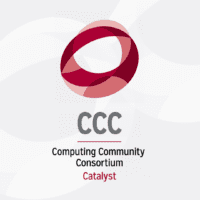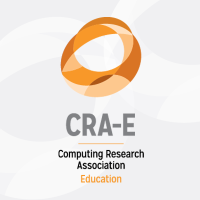CCC Chair Daniel Lopresti Transitions to Chair Emeritus and Several Council Members Rotate Off
By Petruce Jean-Charles, Communications Associate, CCC
The Computing Community Consortium (CCC) wishes Dan Lopresti well as his 2-year term as Council Chair comes to a close. June 30th marks the end of Lopresti’s term and CCC is grateful for his leadership. He remains on the Council for another year as Chair Emeritus. Lopresti has been an active member of the CCC since 2015. His contributions to the community since the start are extensive, but we will share just a few here:
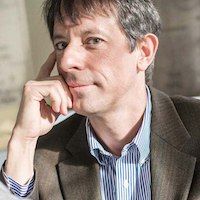 In 2020, Lopresti co-organized and collaborated with partners including Delta 8.7 at United Nations University, the United Kingdom’s Alan Turing Institute and the Rights Lab at the University of Nottingham for the Code 8.7 on Applying AI in the Fight Against Modern Slavery workshops. The first workshop was at the United Nations in New York City and the second one convened in Washington, DC. The workshop sought community engagement and input on laying out a research roadmap aimed at applying AI to the fight against human trafficking.
In 2020, Lopresti co-organized and collaborated with partners including Delta 8.7 at United Nations University, the United Kingdom’s Alan Turing Institute and the Rights Lab at the University of Nottingham for the Code 8.7 on Applying AI in the Fight Against Modern Slavery workshops. The first workshop was at the United Nations in New York City and the second one convened in Washington, DC. The workshop sought community engagement and input on laying out a research roadmap aimed at applying AI to the fight against human trafficking.
Lopresti has also been an author in 19 Request for Information (RFI) responses some including NIH’s Strategic Opportunities and Challenges for the National Library of Medicine, National Artificial Intelligence Research and development Strategic Plan, PCAST Working Group on Generative AI Invites Public Input, and Dual Use Foundation Artificial Intelligence Models With Widely Available Model Weights. While authoring 17 whitepapers ranging from intelligence infrastructure to pandemic preparation. He was featured on episode 5, 13 and 14 of the Catalyzing Computing Podcast discussing his work applying computer science to molecular biology, pattern recognition, and voting machine security and his involvement in the Code 8.7 workshop.
He has also helped organize several CCC American Association for the Advancement of Science (AAAS) panel sessions over the years.
We’d also like to recognize the CCC Council members whose terms expire on June 30th for their commitment to the CCC and to enhancing the computing community.
 Sven Koenig has pushed forward several initiatives to increase the collaboration of researchers from artificial intelligence (AI) and operations research (OR). This included co-organizing three AI/OR workshops to work out a roadmap for further activities, bringing together the professional societies in AI and OR, and helping to create an AI/OR summer school, the inaugural one of which was held in May 2024. He has also been a member of the Sociotechnical Collaborations of AI+X Task Force and responded to three Requests for Information, including the National Artificial Intelligence Research and Development Strategic Plan, National Priorities for Artificial Intelligence, and the PCAST Working Group public input on Generative AI.
Sven Koenig has pushed forward several initiatives to increase the collaboration of researchers from artificial intelligence (AI) and operations research (OR). This included co-organizing three AI/OR workshops to work out a roadmap for further activities, bringing together the professional societies in AI and OR, and helping to create an AI/OR summer school, the inaugural one of which was held in May 2024. He has also been a member of the Sociotechnical Collaborations of AI+X Task Force and responded to three Requests for Information, including the National Artificial Intelligence Research and Development Strategic Plan, National Priorities for Artificial Intelligence, and the PCAST Working Group public input on Generative AI.
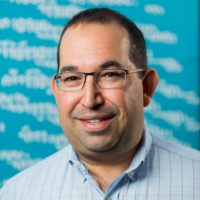 Brian LaMacchia has contributed to many activities while on the Council, especially those related to his research area of cryptography and computer security. During his term, LaMacchia served on the Security, Integrity, and Trust, Socio-Technical Resilience, and Full Stack Task Forces, and his work led to organizing two workshops on Socio-Technical Cybersecurity. He co-authored the Post-Quantum Cryptography Quadrennial Paper and the Algorithmic Robustness whitepaper, shepherded the Research Opportunities in Evidence-Based Elections whitepaper, was the sole author of the CCC’s response to OSTP’s RFI on Advancing Privacy-Enhancing Technologies, and was a co-author on five additional RFI responses. LaMacchia spoke at AAAS Annual Meeting sessions on socio-technical cybersecurity in 2019 and post-quantum cryptography in 2023.
Brian LaMacchia has contributed to many activities while on the Council, especially those related to his research area of cryptography and computer security. During his term, LaMacchia served on the Security, Integrity, and Trust, Socio-Technical Resilience, and Full Stack Task Forces, and his work led to organizing two workshops on Socio-Technical Cybersecurity. He co-authored the Post-Quantum Cryptography Quadrennial Paper and the Algorithmic Robustness whitepaper, shepherded the Research Opportunities in Evidence-Based Elections whitepaper, was the sole author of the CCC’s response to OSTP’s RFI on Advancing Privacy-Enhancing Technologies, and was a co-author on five additional RFI responses. LaMacchia spoke at AAAS Annual Meeting sessions on socio-technical cybersecurity in 2019 and post-quantum cryptography in 2023.
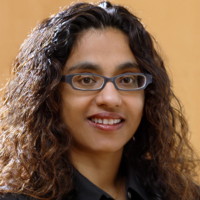 Mona Singh has been an active member of the Grand Challenges Task Force, attending the roundtable and fostering efforts for defining grand challenges. She has also engaged in research surrounding AI and ML systems in healthcare, including the 2023 RFI response on Using Artificial Intelligence and Machine Learning in the Development of Drug and Biological Products and the 2024 RFI response on the NIH’s Strategic Plan for Data Science 2023-2028. Mona Singh was a co-organizer of the Future of Pandemic Prevention and Response CCC Workshop, held in Fall 2023, and helped organize the CCC-organized AAAS panel on health equity in 2023.
Mona Singh has been an active member of the Grand Challenges Task Force, attending the roundtable and fostering efforts for defining grand challenges. She has also engaged in research surrounding AI and ML systems in healthcare, including the 2023 RFI response on Using Artificial Intelligence and Machine Learning in the Development of Drug and Biological Products and the 2024 RFI response on the NIH’s Strategic Plan for Data Science 2023-2028. Mona Singh was a co-organizer of the Future of Pandemic Prevention and Response CCC Workshop, held in Fall 2023, and helped organize the CCC-organized AAAS panel on health equity in 2023.
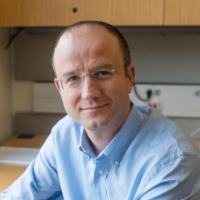 Ufuk Topcu has been an effective member of the Addressing Unforeseen Deleterious Impacts of Technology (AUDIT) Task Force. He has also led the Assured Autonomy workshops series, providing major findings on the challenges and shortcomings that need to be addressed so that autonomy can sustainably fuel a long-lasting transformation. Other contributions to CCC include acting as the liaison for Community-Driven Approaches to Research in Technology & Society (CDARTS) and participating in RFI responses such as PCAST Working Group on Generative AI Invites Public Input, Developing a Roadmap for the Directorate for Technology, Innovation, and Partnerships at the National Science Foundation, and AI Accountability Policy Request for Comment.
Ufuk Topcu has been an effective member of the Addressing Unforeseen Deleterious Impacts of Technology (AUDIT) Task Force. He has also led the Assured Autonomy workshops series, providing major findings on the challenges and shortcomings that need to be addressed so that autonomy can sustainably fuel a long-lasting transformation. Other contributions to CCC include acting as the liaison for Community-Driven Approaches to Research in Technology & Society (CDARTS) and participating in RFI responses such as PCAST Working Group on Generative AI Invites Public Input, Developing a Roadmap for the Directorate for Technology, Innovation, and Partnerships at the National Science Foundation, and AI Accountability Policy Request for Comment.
CCC appreciates the work of all of these council members!








